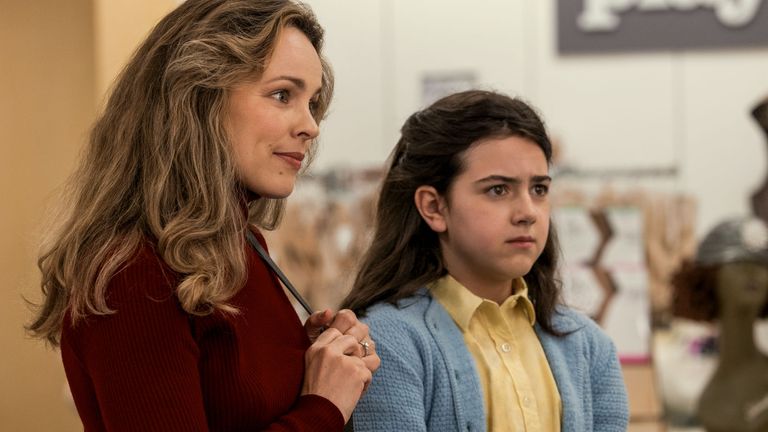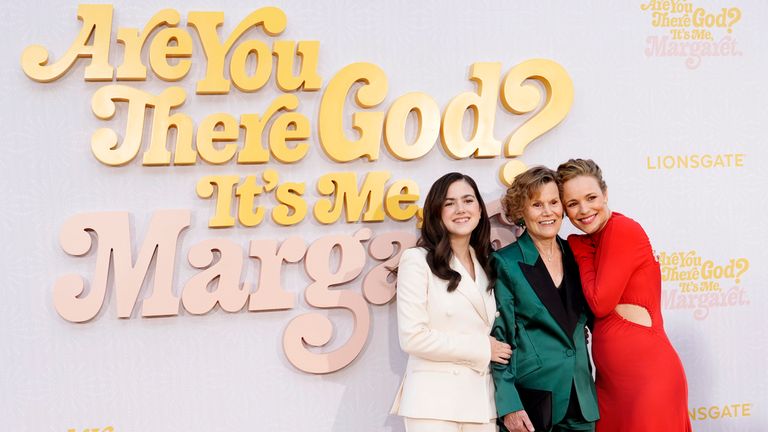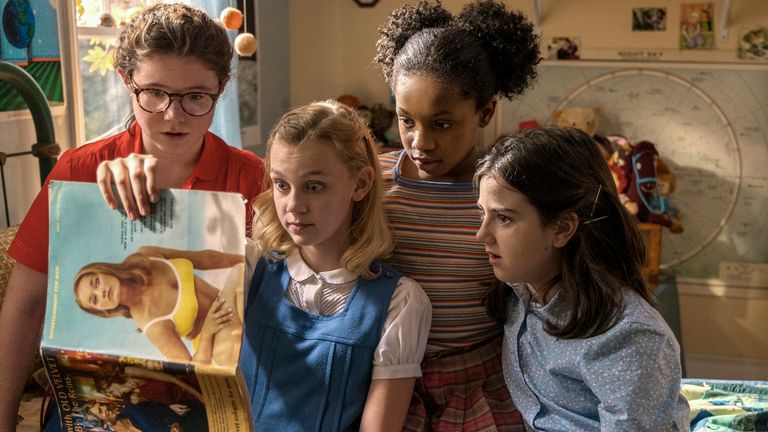Growing up in the 1990s, like thousands before us my friends and I discovered Judy Blume.
While many of her books were restricted in America after they were published, here in the UK, at our secondary school in Leicestershire at least, we had the thrill of reading her words during library sessions and rainy break times; the spines cracked and many pages dog-eared by those who had discovered the best (juiciest) bits before us.
Blume’s coming-of-age stories were some of the most popular reads for teenagers, mainly young girls, who passed through on their way to adulthood. Sex, masturbation, periods, sexuality, body image, puberty, disability, friendship, religion, even death; we tittered at some parts, cried at others, and we lapped up Blume’s books because they explored these issues in a way that was real and relatable.
While our sex education classes sternly taught us how not to get pregnant, Blume’s stories helped us learn the realities of first sexual encounters and navigating those awkward formative years. She understood the worries and complexities of being a teenager, but treated us like grown-ups.
Published in 1970, Are You There God? It’s Me, Margaret – the book that gave us the famous “We must, we must, we must increase our bust” exercise – is the American author’s best-selling novel. It’s a story that has connected generations across the world for more than 50 years, but is only now being adapted for the big screen for the first time.
Relative newcomer Abby Ryder Fortson, now 15, plays 11-year-old Margaret, a young girl who is uprooted from her life in New York City for the suburbs of New Jersey, dealing with the messy throes of puberty with new friends in a new school. Rachel McAdams, best known for films including The Notebook, Mean Girls, Spotlight and The Time Traveller’s Wife, plays her mother, Barbara.
From censorship to taking away the mystique
When you look at the biggest issues in Margaret’s life – menstruation, bra size and confusion about religion, all typical and really rather innocent preoccupations for preadolescent girls – it is quite hard to believe the censorship surrounding the book in America.
“These are things that are so natural, that happen to most people and why not share in our experiences, make it a little easier for everyone,” McAdams tells Sky News, discussing the importance of Blume’s seminal book in a UK first interview. “[Let’s] take away the mystique, you know, so you’re not wondering: am I normal? Is this supposed to be happening? Is everybody else going through this?”
Fortson says she related to Margaret “on so many levels, with her figuring herself out” and her story is helpful for teenagers today. “It’s something that a lot of us go through. Especially with current taboos, I think it’s really important that we have these conversations.”
The film has been widely praised by reviewers, which is no mean feat for an adaptation of a much-loved text. And Blume herself is happy, telling Variety: “I may be the only book writer who has ever said that the movie is better than my book, and I mean it.”
‘If someone’s not hurting someone else, anything goes’
As well as learning about sex, Are You There God?, as the title would suggest, also tackles the issue of faith; Margaret’s mother is Christian and her father is Jewish, and she is raised without an affiliation to either.
Fortson says it is natural to be curious. “I think Margaret figures that out as well, and I think she has all these people in her life telling her, you have to be this, you have to use this label. But I think it’s really her journey that she finds out she can just believe in what she believes in, and she doesn’t really need to listen to the other people telling her what to do.”
In an emotional point in the film, Barbara explains to Margaret that her own Christian parents disowned her because she married a Jewish man. Whether the reason is religion or something else, such as sexuality, the trickiness of navigating a relationship with parents who think differently is something many will relate to.
Read more:
The romcom from the director ‘allergic’ to romcoms
Meet the woman who taught Austin Butler to move like Elvis
Dame Judi Dench on losing the personal touch in medicine
“I wish people didn’t have to choose between families and themselves, who they innately are,” says McAdams. “I wish those things just had nothing to do with each other. Open-mindedness and tolerance is, to me, always the way. If someone’s not hurting someone else, then I think anything goes.
“I think it is really sad that Barb can’t have a relationship with her family because of who she loves… but that happens out there, and hopefully we’re gradually, with conversation and stories like this being put into the world, we’re moving into a more kind, compassionate time.”
Click to subscribe to Backstage wherever you get your podcasts
Let’s talk about sex…
McAdams, who has two young children, says she hopes Margaret’s story can be helpful not just to children and young adults, but to parents as well.
“Movies, storytelling is sort of a safe buffer to inspire difficult conversations,” she says. “I think it could be a great way in for parents to talk about something that is still uncomfortable. I mean, we can’t deny there is a reason why [talking about sex] is still uncomfortable and kids just want to, like, die when you bring it up. But also…
“I can vouch for that,” Fortson interrupts. “It’s so uncomfortable.”
“But also so necessary,” McAdams continues. “And to be able to go to your parent with questions and know you won’t be judged and you will be embraced for whoever you are becoming and are – I think that’s so beautiful. I had that in my own life and it served me really well.”
Are You There God? It’s Me, Margaret is in cinemas from 19 May from Lionsgate UK



